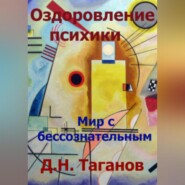По всем вопросам обращайтесь на: info@litportal.ru
(©) 2003-2024.
✖
Русское воскрешение Мэрилин Монро. На 2 языках
Год написания книги
2021
Настройки чтения
Размер шрифта
Высота строк
Поля
“Yes, comrade Andropov, we could do this, that is a great honor for us,” uttered the academician, coining the words. “Their genetics materials had been wisely preserved with an incredible far-sight by Soviet scientists in the twenties; it’s in excellent condition: the body tissues, brain slices. I know it as a curator of Organics laboratory which oversee the body of immortal Lenin in his mausoleum.”
“Fine. Yet, don’t you breathe a word to anyone. Do you understand? All I said is a top state secret. You will be informed of my decision. Go to your work, and don’t waste any time.”
Академик ждал, когда ему об этом сообщат, почти год. И вот действующий генсек, правивший страной более двадцати лет, сошел в могилу у кремлевской стены на Красной площади. И следующим, Третьим за историю, генсеком был избран в политбюро партии бывший шеф КГБ товарищ Юрий Андропов.
Academician waited nearly a year for this decision to be relayed to him, but the government-direct-line telephone in his office, vertushka, was silent. Suddenly – as can be sudden the death of a sick eighty-year old – died current Secretary General who ruled the country for more than twenty years. It also triggered the coming death-harvesting of gerontokratia in the Party’s Politburo. He was buried with a pomp and artillery salutation in the grave near the Kremlin wall on the Red Square. The next Secretary General, the third in history of the Party, was elected by the intimate circle of old members of Politburo. They elected KGB chief Yuri Andropov.
Академик сразу объявил тогда в своей лаборатории готовность номер один. Но и без этого все давно было готово. Не имея еще прямого поручения сверху, он давно сумел, пользуясь своим положением члена ЦК, достать срезы мозга и образцы тканей почти всех, из ленинского окружения начала двадцатых годов. Всей легендарной ленинской гвардии большевиков, загубленной Иосифом Сталиным. И не только их. В его криокамерах теперь хранились, и были готовы для первичных экспериментов, ткани многих великих поэтов и ученых. Почти все это поступило из бывшего Института Мозга, куда в двадцатых и тридцатых годах отправляли в тазиках мозги всей тогдашней элиты: для взвешивания и изучения. Полагали, что раскрытие тайны человеческого гения было делом первостепенной важности для молодой советской науки. Для этого института не пожалели даже золота в те голодные годы и купили для него в Германии удивительную машину. Она срезала тончайшие, почти прозрачные слои человеческого мозга, один за другим, как ветчину в хорошем магазине. К сожалению, разглядеть в полупрозрачных розовых пленках загадку человеческого интеллекта так и не удалось. Но их хранили, как величайшее сокровище, каждую пленку между двух стекол, в высоких красивых шкафах из полированного дерева.
When academician saw a foot-high photo of the new Secretary General in the party paper Pravda he announced top alert warning in his laboratory, though everything was ready months ago. All the previous year, not yet having any directives from above, the academician, using his position of a member of the Central Committee, could manage to get the cuts of the brain and samples of body tissues of almost all Lenin inner circle Bolsheviks of early twenties, of all legendary Lenin “Old guard” ruined later by Joseph Stalin. In his hyper-freezers were also stored now ready for initial experiments the tissues of great poets and scientists of the country. All these precious materials came from the Institute of Brain, laboratory, organized by Bolsheviks, and which received in mandatory manner the brains of all the state’s elite who died in the twenties and the thirties of natural causes or not. These brains came, and that was registered by photographs, in a shallow bathroom basins, covered with plain towels, for consequent weighing, cutting into paper-thin slices, and then a profound research. It was universally believed that disclosing of the mystery of human genius was a matter of paramount importance for a young Soviet science. In those famine-years, when millions died deprived of the bread that was sold abroad for machinery for the industrialization, this Institute of Brain was granted precious death-tolled gold to purchase in Germany a marvelous machine that could cut off finest, almost transparent layers of human brain, as a ham in a food store. Of course, those scientists didn’t decipher the riddle of human intelligence with those translucent pink-colored films, but, nevertheless, they stored them as a priceless treasure, each one between two glasses, inside of the tall beautiful cabinets of polished walnut.
Команды академику сверху или, по крайне мере, вызова туда для доклада, все не поступало. Так прошел еще год. Но вскоре академику и его лаборатории стало не до того. Из Афганистана в страну пошли неторопливым траурным графиком вагоны-рефрижераторы с грузом «200». Не с обычным, а с обожженным или разорванным в куски и лохмотья, и поэтому неузнаваемым, не имеющим ни имен, ни фамилий. Академик и весь его институт теперь употребляли свои знания и опыт только на генетическую экспертизу останков, для установления личности каждого, чтобы отдать павшим героям последние почести.
Yet, months were elapsing, but the academician’s team didn’t get any commands from above. A year passed in a strained waiting, although quite suddenly academician and his lab forgot all about their ambitious dreams. From the remote Afghanistan to their country commenced to arrive on leisurely schedule long trains of refrigerators loaded with the cargo 200. That was the designation for casualties, coined at that time and became regular in later post-Soviet bloody clashes. Cargo 200 from Afghanistan directly affected academician and his laboratory, though not all of it, but only hundreds of burnt or torn to tatters, and hence unrecognizable remains, having neither names nor faces. Academician and his lab plunged into the enormous work of their identification. Only their organics lab had sophisticated genetics expertise for this job, to determine the identity of everyone in order to pay last tribute to these fallen heroes.
Только в конце восемьдесят третьего года, перед самым Новым годом, неожиданно позвонили из секретариата ЦК. Но академика вызывали не в Кремль и не в здание ЦК на Старой площади. Он должен был прибыть в Центральную клиническую больницу. Для встречи лично с генсеком Юрием Андроповым.
But all of a sudden at the end of the nineteen eighty three, on the New Year eve, academician had an unexpected call from the Secretariat of Central Committee and was summoned at long last to the Secretary General. But what seemed to the academician very alarming, he was called not to the Kremlin, or Central Committee building, or any of suburban residences. He was to arrive at the Central Hospital, to meet Secretary General Yuri Andropov privately. Of course, it was implied the top secrecy of Yuri Andropov’s whereabouts.
В ранние декабрьские сумерки его черная «Волга» миновала шлагбаум КПП, на малой почтительной скорости скользнула по заснеженной березовой аллее и остановилась около главной в стране больницы. Надев белый халат, академик молча последовал за дежурным врачом и личным помощником генсека по пустынным широким коридорам. По пути только почтительно вставали из-за своих столов офицеры охраны и медицинские сестры. Перед дверью одной из палат его оставили одного, и в больничной тишине он услыхал, как громко бьется его сердце. Наконец, его пригласили войти.
In the early December twilight academician’s chauffeur-driven black Volga passed a check point barrier, then slowly and respectfully moved through snow-covered birch alley and stopped at the entrance of this foremost hospital in the country. Having put on a hospital gown, academician silently followed the assistant to the Secretary General and his on-duty doctor, passing desolate hushed corridors. On their way Security officers and the nurses stood up respectfully at their desks. Three of them stopped at one of the wards, the academician was asked to wait and his escort entered the door. In a motionless silence the academician has distinctly heard the loud beating of his heart. In five minutes he was asked to enter the ward, too.
Он не сразу рассмотрел генсека. В палате было сумеречно, несколько неярких ламп освещали только аппаратуру у стены, столы с медикаментами и стеклянными приборами. Он рассмотрел сначала широкую, специальную кровать, больного в ней, и блестящие гибкие трубки, уходившие под простыни из большого аппарата, стоявшего на полу в углу палаты. Затем, увидал синюшное, одутловатое лицо, глубоко утопленное в подушке. Он не сразу и узнал генсека, которого больше помнил по портретам в газетах. Но в эту вторую их встречу генсек сразу улыбнулся ему, приподнял с кровати руку и сделал ею дружеский, приглашающий присесть жест. Академик присел на стул рядом с кроватью, теряясь, как ему почтительней вести себя с больным. Но генсек неожиданно громко для больничной палаты заговорил первым.
The academician didn’t immediately make out Secretary General in a dim ward. It was really dark there with just a few gloomy lamps illuminating sophisticated equipment by the walls, and the cabinets full of drugs. At first, with his eyes adapting to darkness, he made out the wide, specialized bed, then a frigid figure of the patient under the covers and the glittering flexible tubing diving under his blankets from the huge apparatus by adjacent wall. Only then the academician noticed cyanotic and bloated face, deep in the pillows. He didn’t immediately recognize Secretary General, because he remembered his face mainly as he saw it in the newspapers, but they of course published retouched photos shot several years ago. Unexpectedly this time, at his second encounter with Secretary General, the latter was the first one to smile. He raised just a little his hand and made a friendly sign to sit down. The academician had sat shyly on a chair by his bedside, being lost as to how respectfully behave with this patient, and what the words were appropriate in the circumstances. But the Secretary General was the first to address him, unexpectedly loudly for the hospital ward.
– Давненько мы с вами не виделись…
– Добрый вечер. Как ваше здоровье, товарищ Андропов?
– Какое теперь здоровье! Нет у меня больше здоровья.
С разговором, академик почувствовал себя уверенней, глаза его привыкали к семеркам палаты, и краем глаза он рассмотрел большой белый аппарат в углу, от которого тянулись к генсеку трубки. Аппарат мерно вздыхал с мягким металлическим шелестом, и изнутри слышалось бульканье жидкости. Он догадался, что это была искусственная почка, но видел такой аппарат в работе впервые.
“Long time we haven’t seen each other.”
“Good evening, comrade Andropov. How’s your health?”
“What health do you mention? I got no health any more.”
With the small talk the academician felt himself more confidently, his eyes got accustomed to the dusk, and he secretly examined the large white apparatus in the corner connected to General Secretary by flexible tubing. The apparatus sighed deeply with soft metallic murmur and a distinct liquid gurgling inside it. The academician has heard the rumors that the sick kidneys plagued the Secretary General and that seemed true. He realized that the sighing apparatus was an artificial kidney; he never saw such a sophisticated thing before.
Генсек перевел взгляд на помощника, стоявшего у двери и сказал:
– Поставьте нам что-нибудь джазовое. Дюка Эллингтона.
Помощник подошел к столу, на котором стоял стереопроигрыватель, выбрал и вынул из конверта виниловую пластинку, поставил ее на вертушку. В палате зазвучал джазовый саксофон.
– Немного громче, – сказал генсек, и саксофон зазвучал громко даже для гостиной в квартире. – Так хорошо. Идите.
General Secretary looked at his assistant sitting at the desk by the door and said softly, “Let’s hear something jazzy. Yeah, put the disk of Duke Ellington for us.”
The assistant went to the side table with a record-player, picked up from the stack on the shelf a vinyl record and put it on the turntable. The ward’s tranquility was pierced by tenor saxophone.
“Louder, please,” said the Secretary General, and the saxophone resonated too loud even for apartment parlor. “That’s fine. You can go.”
Как член ЦК, академик знал о некоторых личных интересах их лидера. Знал, что тот был первым из череды коммунистических вождей, кто понимал музыку, предпочитал классический джаз, и даже сам собирал коллекцию пластинок. Но этот громкий джаз в больничной палате, около вздыхающей искусственной почки, мог означать только старый проверенный способ партийцев защитить их разговор от прослушивания. Начиная с тридцатых годов, все сколько-нибудь важные разговоры в комнатах советские граждане вели только при громко включенном радиоприемнике.
As a member of the Central Committee academician knew about some of personal interests of their leader. Andropov was the first in a succession of Communist leaders who understood music preferring classical jazz, and he even purchased abroad through the state’s Embassies a vast record collection. But this flashy and too loud for a hospital ward jazz music could mean only the reliable and sure way to protect their conversation from eavesdropping, that was frequently used by party’s members from revolutionary days. In the thirties, those deadly gulag years, and even later, all somewhat serious talks the Soviet people normally accompanied with the loud noise of the radio broadcasts.
– Как продвигается ваша работа, – спросил генсек академика.
– У нас давно все готово, товарищ Генеральный секретарь.
– Это хорошо. Вы сами видите, что происходит в стране. Повсеместная коррупция, разгильдяйство, попрание законности. И вдобавок еще эта война в Афганистане. Я пытаюсь навести порядок и… пока не попал сюда, делал все, что мог. Ответьте мне прямо, как коммунист, вы можете вырастить из ваших клонов ленинскую гвардию – быстро, ударными темпами?
– Но потребуются десятилетия… – начал было академик, но тот оборвал его.
– Нет, это для нас слишком долго. Советский Союз столько не протянет. Нужно быстрей.
“How’s your work advances?” Secretary General asked the academician, surpassing the Duke Ellington’s “Take the train A”.
“Everything is ready a long time ago, comrade Secretary General.”
“Good. You see what’s going on in our country. Corruption and negligence everywhere, and still thousands of our soldiers are killed in the bloody war at Afghanistan. I'm trying to clean this mess, and I’ve done all I could – but now I’m in this bed. Tell me honestly, as a Communist, can you grow up from your clones an active and ardent Lenin’s clique – quickly, or let’s say, with an accelerated Bolshevik tempo?”
“Well, I’m afraid it may take many decades – because you would need adequate and grown up Bolsheviks,” anxiously said academician, but the Secretary General interrupted him.
“No, that won’t do, too long a time, our Soviet Union won’t hold on that long. We need it sooner, as early as possible, or never.”
Академик впервые в своей жизни услыхал такие слова про Советский Союз, и сказал их ему генеральный секретарь его партии. Поэтому он начал говорить очень сбивчиво:
– У нас есть… в стадии экспериментов, правда… один метод ускоренного развития… Но это очень опасно для их жизни.
For the first time in his life academician had heard such words about the Soviet Union, and those words were spoken by the Secretary General of his party. Therefore, confused, he spoke then very erratically.
“Yes, we have, in the stage of experiments, a methodic of accelerated growth, though it’s very dangerous for their health, it’s a great risk to try, and we cannot foresee all the consequences …”
– Время теперь решает все. Главное, чтобы они появились среди нас, взошли только один раз на трибуну мавзолея великого Ленина на Красной площади, и чтобы их увидала вся наша страна, весь мир. Это всколыхнет, вдохнет во всех нас утраченный энтузиазм, зажжет революционное пламя в каждом коммунисте. Нам достаточно только этой искры, чтобы зажечь огонь в груди коммунистов всего мира, и он уже будет негасим, как это случилось семьдесят лет назад. А после этого ваши клоны могут уйти, они выполнят свою историческую миссию. Вы понимаете меня?
“Time’s of paramount importance now. What we need is just their appearance among us. Just let them ascend the tribune on the mausoleum of great Lenin at the Red Square, at least once or twice, so they would have been seen and heard. That would stir millions of people in our country, it will inject lost enthusiasm, ignite the revolutionary flame in the breast of every Communist. Those sparks will be sufficient to ignite a fire in the breasts of all peoples of the world, which would be inextinguishable, as it happened seventy years ago after our October revolution. That would be enough! Having done that your clones could then leave us forever, they would have had accomplished their historic mission. Am I clear to you?”
– Да, товарищ Андропов. Но, к сожалению, самое быстрое, что можно сделать, это – год для клона за два обычных человеческих. Быстрее ничего не получится, иначе, они умрут слишком рано.
– Это уже лучше…, может быть, и успеем. Может быть. Другого выхода все равно, я вижу, у нас больше нет.
– По вашему приказу я могу начать процесс зачатия буквально завтра.













